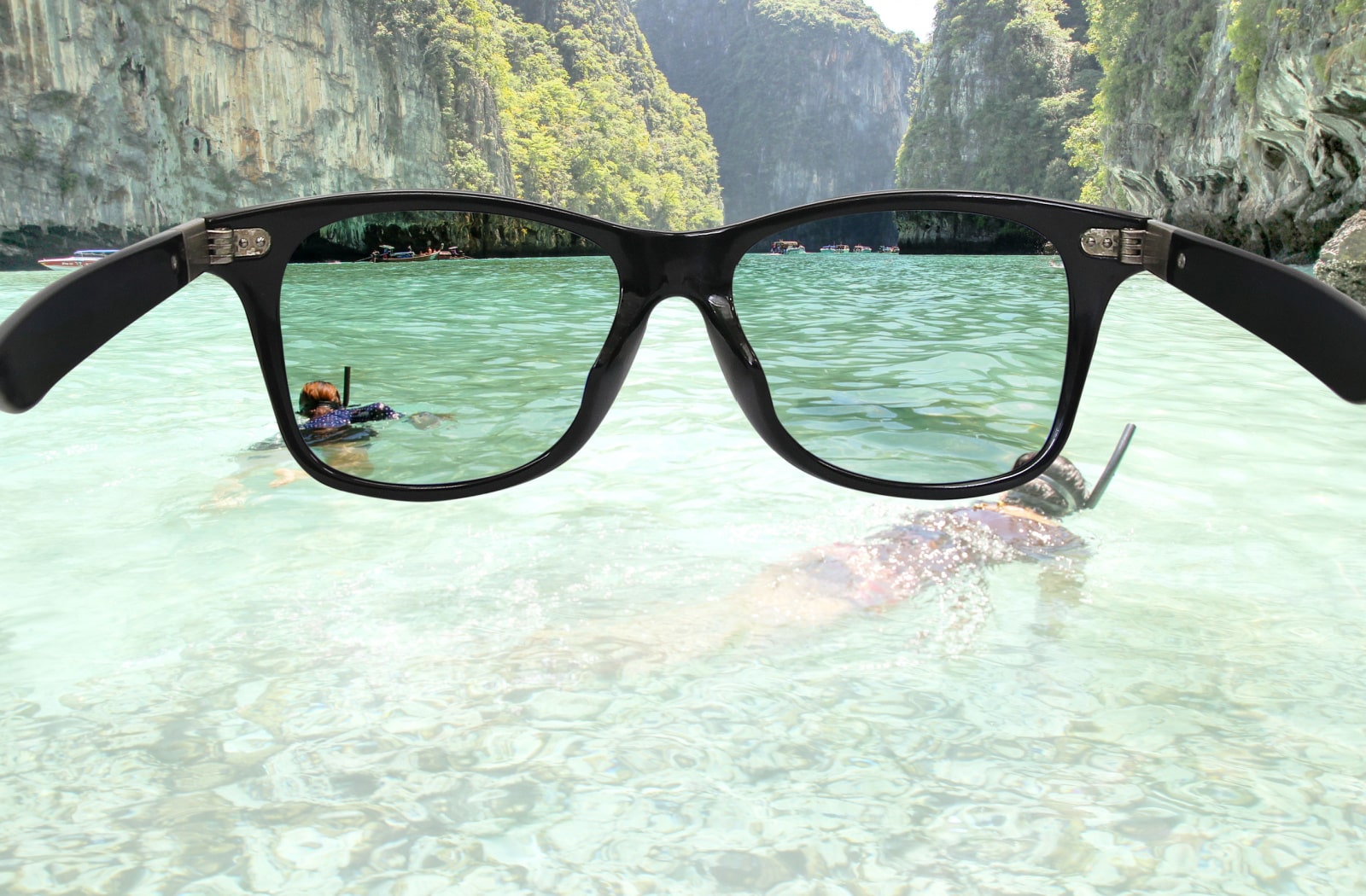Sunglasses offer several options for protecting your eyes from the sun’s harmful rays, but do you know about polarized lenses? You’ve probably heard of polarized lenses but may not know what they do or how they work.
Polarized sunglasses provide extra protection against glare. They’ve become popular among people who love outdoor activities or drive long distances and need to filter reflected light.
How Do Polarized Sunglasses Work?
You should always choose sunglasses that protect your eyes from harmful UV rays, but not all shades can block the harsh, reflected rays bouncing off reflective surfaces. Polarized sunglasses have a special lens coating that reduces this glare by blocking horizontal light waves, making your vision clear and sharp and creating a more soothing and comfortable viewing experience for the wearer.
Polarized Sunglasses vs. Regular Sunglasses: What’s the Difference?
Regular sunglasses are designed to protect the eyes from the sun’s rays, but they don’t offer protection against glare and reflected light.
However, polarized sunglasses provide comprehensive protection against glare, enhancing details and reducing eye strain.

How Do Polarized Sunglasses Work?
Light bounces off flat, reflective surfaces like roads, water, or snow, reflecting horizontally and creating a high-intensity, blinding glare that can cause eye strain and impair vision.
Polarized lenses use a vertical polarizing filter that blocks these horizontal waves from reaching the eye, resulting in a more precise, sharper, and more comfortable vision.
Who Can Benefit from Polarized Sunglasses?
Polarized sunglasses are an excellent choice for anyone who spends time outside playing sports, working, or driving. They’re particularly beneficial for snowboarders, skiers, boaters, and water sports enthusiasts, as they reduce the glare from water, ice, and snow.
They’re also ideal for people who work outdoors, like construction workers or landscapers. Polarized sunglasses are also ideal for those with sensitive eyes or who have undergone eye surgery, as they provide an extra layer of protection against UV rays.
Pros of Polarized Lenses
Polarized lenses provide:
- Diminished glare
- Sharper vision
- Decreased eye strain
- Improved colour contrast
Polarized lenses also improve visual clarity by enhancing contrast and reducing eye strain.
Cons of Polarized Lenses
While polarized sunglasses have many benefits, they’re not good for:
- Looking at LCD screens
- Flying
- Low-light situations and driving at night
As polarized lenses block out certain light waves, they can sometimes make reading digital screens such as cell phones, vehicle dashboard controls, or GPS devices difficult. The filters can cause a rainbow effect on these screens, making it hard to see anything.
Some people may find the lenses too dark, and they can hinder visibility in certain conditions. It’s also important to know that polarized sunglasses don’t provide UV protection alone. Always check the label to confirm that the sunglasses you buy provide 100% UVA and UVB protection.
How to Choose the Best Polarized Sunglasses
When choosing your next pair of polarized sunglasses, consider the frame style, lens colour, and polarizing technology. The frame style should be comfortable and fit well on your face, while the lens colour can influence how you see your environment.
Generally, gray and brown tints are the most popular colours as they provide a natural colour balance, but you can choose other colours based on your preferences or specific activities.
Protect Your Eyes from the Sun
Polarized sunglasses are a fantastic way to enhance your vision and shield your eyes from glare. For the ultimate protection, visit Eye Effects and let our team help you create a customized pair of shades with the perfect frames and lens coating.
Whether you’re looking for prescription sunglasses or a non-prescription pair to wear with contacts, our experienced team can help you achieve clear, safe vision.


